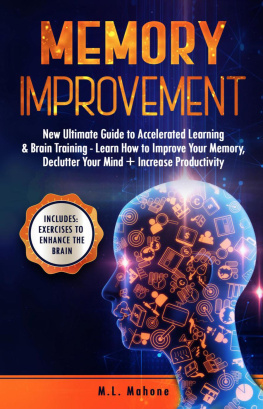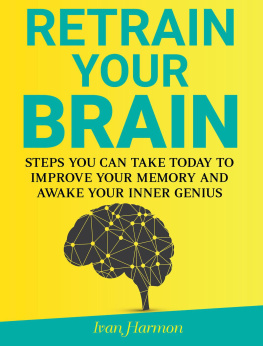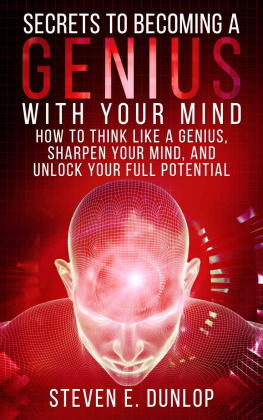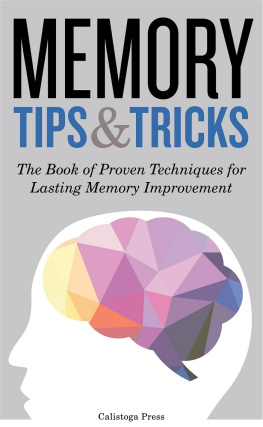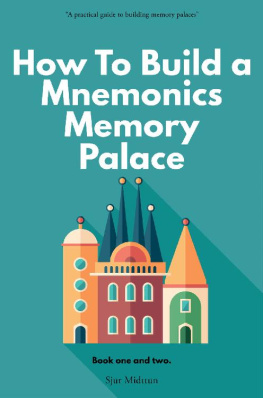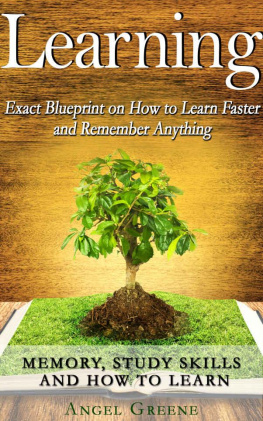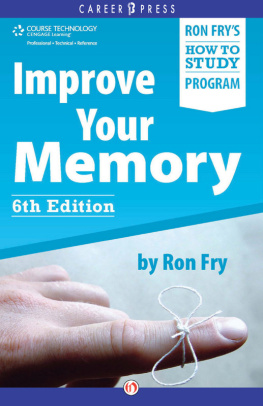Helmut Sachs - Remember Everything You Want and Manage the Rest: Improve Your Memory and Learning, Organize Your Brain, and Effectively Manage Your Knowledge
Here you can read online Helmut Sachs - Remember Everything You Want and Manage the Rest: Improve Your Memory and Learning, Organize Your Brain, and Effectively Manage Your Knowledge full text of the book (entire story) in english for free. Download pdf and epub, get meaning, cover and reviews about this ebook. year: 2013, genre: Home and family. Description of the work, (preface) as well as reviews are available. Best literature library LitArk.com created for fans of good reading and offers a wide selection of genres:
Romance novel
Science fiction
Adventure
Detective
Science
History
Home and family
Prose
Art
Politics
Computer
Non-fiction
Religion
Business
Children
Humor
Choose a favorite category and find really read worthwhile books. Enjoy immersion in the world of imagination, feel the emotions of the characters or learn something new for yourself, make an fascinating discovery.
- Book:Remember Everything You Want and Manage the Rest: Improve Your Memory and Learning, Organize Your Brain, and Effectively Manage Your Knowledge
- Author:
- Genre:
- Year:2013
- Rating:3 / 5
- Favourites:Add to favourites
- Your mark:
Remember Everything You Want and Manage the Rest: Improve Your Memory and Learning, Organize Your Brain, and Effectively Manage Your Knowledge: summary, description and annotation
We offer to read an annotation, description, summary or preface (depends on what the author of the book "Remember Everything You Want and Manage the Rest: Improve Your Memory and Learning, Organize Your Brain, and Effectively Manage Your Knowledge" wrote himself). If you haven't found the necessary information about the book — write in the comments, we will try to find it.
Memorization is not enough
Create a memory palace and store everything in your brain. Does this really work? Yes mnemonic techniques allow you to memorize a large fact file, learn foreign languages, and give an important speech completely from memory. Consequently, we cover the most effective memory improvement methods and accompany them with real-life examples.
But to really keep what you have learned, you have to reinforce it. This book scratches more than the surface when it comes to the most powerful memory technique of all Practicing recall using effective methods and modern computer software.
Besides, what do you want to remember in the first place?
There is more information on the Internet than you would ever want to remember and a lot of it will be outdated in a few years. Dont download it all into your brain or your computer. Instead, become smart about extracting the important information, taking notes, and organizing what is relevant for your life, business, research, or studies, so that you can re-find and use it with ease while it is relevant.
What can you expect from this book?
* A comprehensive set of memory improvement techniques: Learn and review faster, pass exams, memorize foreign language vocabulary with confidence, and improve your memory in all areas of your life.
* You learn how to extract, organize, and review information from all kinds of sources, including the web, books and e-books, videos, etc., using modern, mostly free computer software.
* Re-find your information with ease, build your own digital library, and create bibliographies with the click of a few buttons.
* You learn how to take and manage notes in innovative ways, including techniques such as mind mapping and outlining.
* A very effective method to improve your attention span and concentration.
* Techniques to beat absent-mindedness and stress.
* A wealth of references and resources.
* Easy-to-follow real-life examples.
Helmut Sachs: author's other books
Who wrote Remember Everything You Want and Manage the Rest: Improve Your Memory and Learning, Organize Your Brain, and Effectively Manage Your Knowledge? Find out the surname, the name of the author of the book and a list of all author's works by series.


